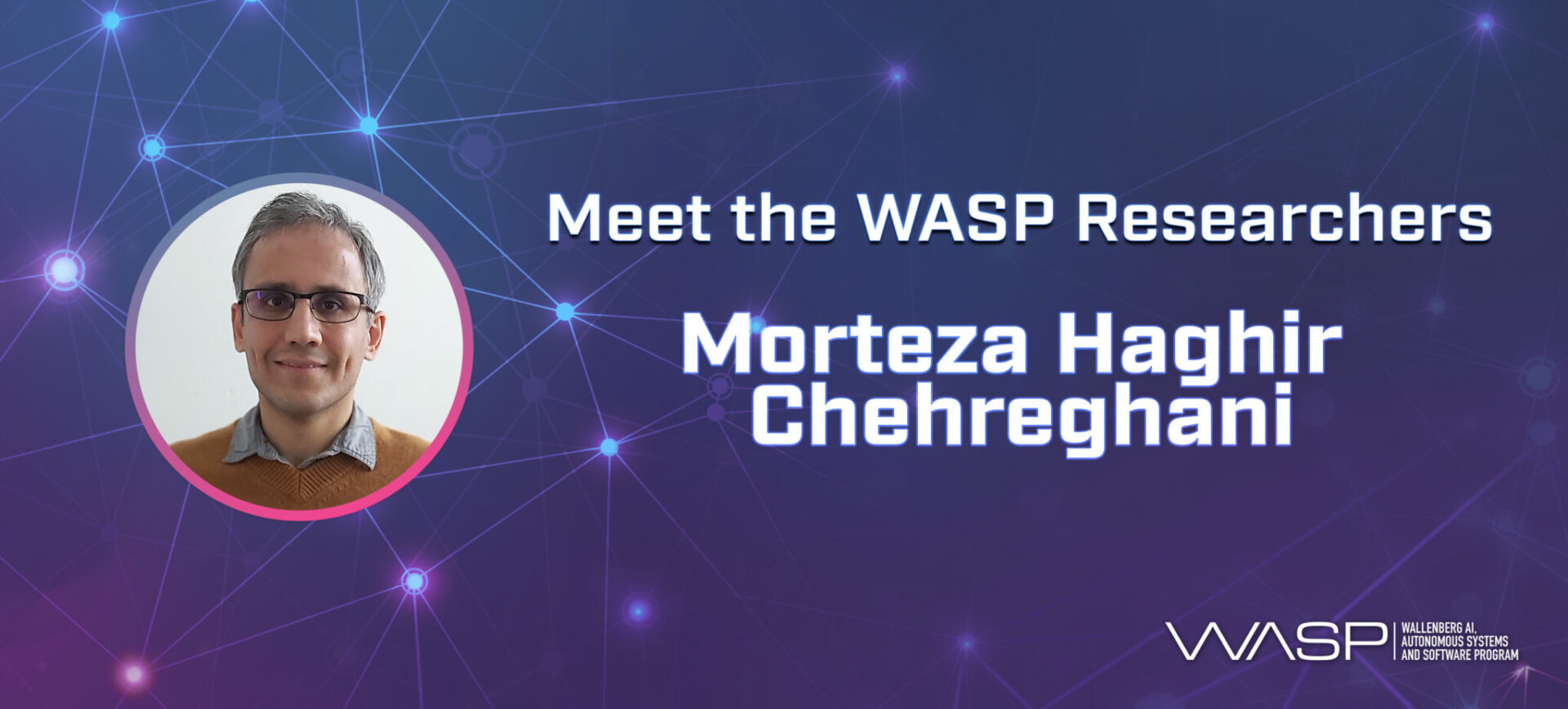WASP is very proud to have so many excellent researchers involved in the program. More than 450 researchers, reaching from assistant to senior professors, are affiliated with WASP. Some are international recruitments who have come to Sweden to join the WASP community, others are already well established in the Swedish academic system.
Through a series of portraits, you get the opportunity to get to know them a little bit better.
Meet Morteza Haghir Chehreghani
Morteza Haghir Chehreghani is an Associate Professor in Machine Learning and Artificial Intelligence at the Department of Computer Science and Engineering at Chalmers University of Technology. Dr Haghir Chehreghani joined WASP in 2018.
What is your position/role in WASP?
Supervisor of Academic WASP PhD students/WASP Faculty.
Why did you choose to join WASP?
It is a great program for support of both fundamental and applied research in AI. Moreover, the graduate school complements the advanced educational program for PhD students. The extent of this program and coverage of different aspects of AI is impressive.
What are the benefits you see in WASP?
- Advancement of research in strategic areas of AI-ML
- Bridging the gap between research and technology/application
- Making the researchers and industries closer to each other
- Networking and internationalization
Briefly describe your research topic.
Artificial Intelligence, Machine Learning and Data Science constitute my general research interests. In particular, I am interested in Under-Supervised Machine Learning and Decision Making, i.e., the AI-based decision-making problems that need to deal with the lack of sufficient information (e.g., labeled data, annotations, decision parameters, uncertainty, and beyond). I study these problems in the contexts of Sequential Decision Making (Interactive Machine Learning) and Unsupervised Learning, where the former constitutes my current research, and the latter has been the past research area. In this regard, I currently work on active learning and active decision making, multi-armed bandits, (deep) reinforcement learning, and Bayesian optimization.
I am interested in the research that is based on principled theoretical foundations, and at the same time, has a significant impact on society and is applicable to complex real-world problems. Here are three very recent sample publications which aim for this goal.
- “Online Learning of Energy Consumption for Navigation of Electric Vehicles”, Artificial Intelligence 2023 https://doi.org/10.1016/j.artint.2023.103879
- “Recovery Bounds on Class-Based Optimal Transport: A Sum-of-Norms Regularization Framework”, ICML 2023 https://arxiv.org/abs/1903.03850
- “Efficient Online Decision Tree Learning with Active Feature Acquisition”, IJCAI 2023 https://arxiv.org/abs/2305.02093
In what way can your research be of importance to our society in the future?
As I mentioned, I am interested in research that enjoys both strong theoretical foundations and applicability to real-world problems. My research has been applied to real-world problems in domains such as transport, life science, energy, automation, recommendation, and decision making. Currently, I collaborate with AstraZeneca, Volvo AB and Volvo Cars on development of advanced AI methods for problems in drug design, traffic modeling, and energy-efficient navigation. These problems are of high importance for the future of our society, and I see great potentials for AI to provide effective solutions. Real-world problems often inspire me to find interesting research questions, sometimes even very fundamental research questions.
For more information about Dr Haghir Chehreghani see https://www.cse.chalmers.se/~haghir/
Published: May 25th, 2023
[addtoany]


